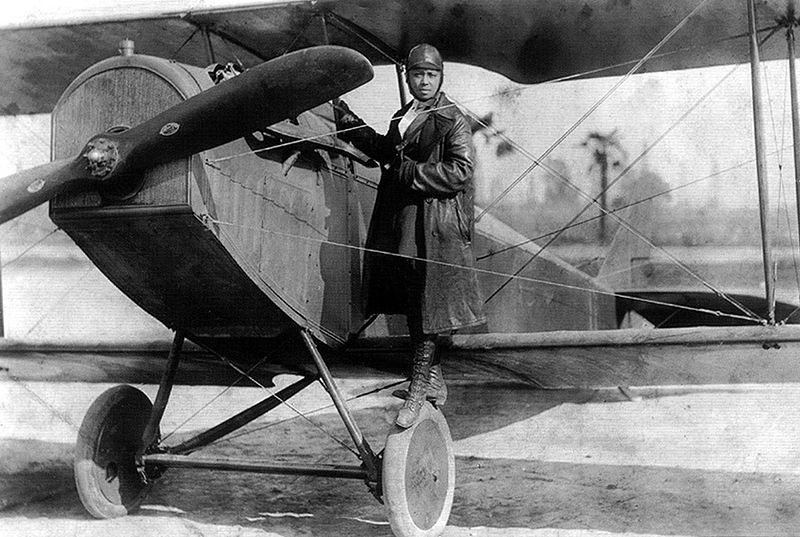When we think of strong black women, some of the first female role models to cross our minds may be Michelle Obama, Oprah Winfrey, Kamala Harris, and Serene Williams. However, these modern-day icons are not the first women who had a ground-breaking impact in the United States.
In fact, the black female revolution goes back centuries.
Let us take a look at the little known black women of American history who have made an indelible impression in society and culture.
Mary McLeod Bethune
July 10, 1875 – May 18, 1955
Mary McLeod Bethune was an outspoken advocate of education who lived in a time of segregation when it was very difficult for African-American children to achieve quality education.
Mary suffered great hardship to educate herself while working on a plantation to support her family. She succeeded in becoming an educator and is credited with founding the Daytona Educational and Industrial Institute for Girls.
Her leadership abilities and her educational activism made her take the crucial step into the world of politics. Later, Mary went on to establish the National Council of Negro Women. She also served as a member of Franklin Roosevelt’s administration, where she was considered an informal “race leader at large.”
Isabel de Olvera
16th to 17th century
Isabel de Olvera was an African-Indian mixed-heritage black woman born in Mexico in the late 1500s. As a young, unmarried, black woman, Isabel wanted to join an expedition to New Spain (modern-day New Mexico, Florida, and Arizona) and needed written permission from the mayor of the city of Queretaro that claimed that she was a free black woman.
It took eight months of struggle, during which Isabel had to provide testimonies from witnesses to prove her independence and worthiness, but she succeeded in getting the permission. The 1400-mile journey itself was riddled with innumerable hardships, including traveling across many rivers, mountains, and deserts.
Isabel’s journey is one of the earliest records of black people fighting for justice and liberty in North America and challenges the narrative that the fight for independence only began when Africans were enslaved and brought to the US.
Bessie Coleman
January 26, 1892 – April 30, 1926
Bessie Coleman was the first African-American woman and the first Native-American ever to hold a pilot license in the United States. In her early days, she was continuously rejected by aviation schools in the US due to the color of her skin, yet, she never gave up her dreams, and decided to learn aviation in France.
To do that, she learned French and graduated from the FédérationAéronautiqueInternationale and secured a pilot license in a few years. However, when she returned to her home country, she still faced discrimination and was barred from becoming a commercial pilot.
Her only option was to work as a stunt pilot and work at air shows, which she did. In 1922, she became the first African-American woman to make a public flight.
Shirley Chisholm
November 30, 1924 – January 1, 2005
Shirley Chisholm was the first-ever black woman elected to the US Congress and spent her whole life dedicating herself to helping her community.
In 1968, Shirley was elected to represent Brooklyn by defeating a male opponent. She served seven terms in the US House of Representatives, where she became an advocate for equal opportunities for people of color when it comes to education and employment.
In 1972, Shirley also became a Democratic nominee for president, but she lost the nomination to Sen. George McGovern. However, her impact is still seen today. In fact, when the then-senator Kamala Harris announced she would be taking part in the presidential campaign, many people noted that her campaign material paid tribute to Shirley.
Ida B. Wells
July 16, 1862 – March 25, 1931
Ida B. Wells was born into slavery in Mississippi during the Civil War. After the emancipation, Ida was able to enroll at the historical black liberal arts Rust College and the Fisk University and became a schoolteacher and later a journalist.
Tragedy struck when three of her friends were killed by a lynch mob and so began Ida’s work to bring awareness towards the racially-motivated crimes against African-Americans in the US. Ida became a co-owner of the Memphis Free Speech and published her investigative writing in newspapers and pamphlets, encouraging people to protest against racism and lynching. Her writing caused immediate outrage and she was forced to move to Chicago.
Ida was also a very outspoken activist for women’s rights issues, including the suffrage. She is also one of the founders of the NAACP and, with one of her friends, founded the Alpha Suffrage Club.
Bottom Line
The history of the US is largely written by white men but the aim of this article is to reframe the narrative, placing black female role models at the core. Although these women moved mountains, they were also remarkable for simply surviving and following their dreams in the face of unrelenting oppression. Buy the book African American Inventor Package by Philip Franklin to learn about the unsung black inventors in history.

